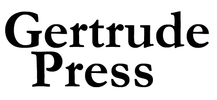|
The impact hits the car like a thunderclap. A bumping, rattling avalanche-rumble under the wheels.
“Oh God. Ellie, we hit something-” “We didn’t.” In the streetlights that snatch at us in freeze-frame intervals I see her knuckles whiten on the wheel. “We did. Stop the car!” She doesn’t. “We hit someone,” I whisper. I look back, but the black void beyond our tail lamps devours the road’s white lines. We passed a cyclist earlier, struggling uphill. A hitchhiker, a straggle of pedestrians. “There’s no one out here,” Ellie snaps. She’s driving fast. You’d think we’re running from something. Maybe we are. Back at the wedding there was a moment, just a moment, when I nearly struck the killing blow. “You two haven’t changed one bit,” a former classmate crowed upon seeing us. There were so many Santa Maria old girls at the ceremony that it felt like any moment the bell would ring and we’d flock to homeroom, a squabbling bustle of tartan skirts. No, I supposed we hadn’t. There was Ellie, sleek, angular, panther-eyed, sports uniform swapped out for a tailored suit. And there I was, in frills and lace. Side by side like we’d been since primary school. Cassandra-and-Ellie. When you’re friends long enough your identities tangle, knot together. Your names are spoken in an amorphous rush. Cassandrandellie. What was new were the twin rings on our fingers. The way our classmate’s gaze stuttered back over us, re-evaluating. “How long…?” “Seven years,” Ellie said, “Married for five.” She said it the same way she might discuss the weather. Our marriage was a fact of life, like the tides, something you went to bed assured would be there come morning. It happened at the reception. I was hovering near the dancefloor when Ellie reached for my hand, and I felt a great feverish swell. Like a cicada straining against its skin, wanting to burst raw and smarting and free in the open air. Something between aversion and apathy. And I moved to hold my purse in both hands, so she couldn’t tangle her fingers in mine. She didn’t look at me, but she knew. And the words rose up, caught in my throat - not a question or an invitation for discussion, but a certainty. An inevitability. I swallowed them. Cowardice, or maybe grief, stopped my voice. But for the rest of the night we, Cassandrandellie, were a dropped glass in freefall. And now here we are. Hurtling through the dark. Fleeing the crime scene. I can feel the engine under us like a lion’s growl, like the quaking aftermath of an orgasm, like the shudder of life leaving a body. “We need to stop!” I insist. “Just in case. It’s the responsible thing to do.” “Don’t shout. Jesus, Cass, it was probably nothing. It didn’t feel that big.” “It did.” Did it? Already the memory is wobbly, uncertain. “Just calm down. You always do this, make a big deal out of nothing-” “No, you always-” Anger steals my voice. She always does the opposite, makes nothing out of a big deal. Late nights at work - it’s only temporary. Forgotten anniversaries - just this once, sorry. The lack of effort with friends - we didn’t like them much anyway. If it was something big, it would be easier to bear. Something powerful and explosive would force the moment to its crisis. But it’s the small things, the slow-spreading fractures, that are the most dangerous. Those leave you second-guessing. Leave you with perilous hope. Leave you mired in doubt, that most corrosive, unbearable of emotions. Or maybe I’m making a big deal out of nothing. “Oh, Cassie, you make your own suffering,” my mother said once, when I came to her in tears after an Aunty’s vicious tirade about Suyin’s third daughter living in sin. Utterly without sympathy. What I had done did not fit neatly into my family’s book of great stories - those tales of humble hometowns, of intercontinental ventures, the back-breaking bloody-nailed annals of the migrant dream. It was not a sacrifice, not a struggle, it was self-wrought. It was a choice. A selfish one, from my parents’ perspective. I was not shunned for it - just kept on the fringes, in that purgatory that is a Chinese family’s disapproval. |
As teenagers, Ellie’s cool dismissiveness was endearing; things seemed to slide off her. I found it charming, the effortless way she slipped through life.
Now I hear her swallow. In my periphery I see her profile silhouetted in silver shards of moonlight. The shifting shadows metamorphose her; she’s fifteen again. She’s a stranger. “Anyway,” she says abruptly, “We’ve gone too far now. If we hit something, it’s too late.” “If we hit something, running’s worse than turning back.” “We’ve gone too far,” she repeats. What I had done did not fit neatly into my family’s book of great stories - those tales of humble hometowns, of intercontinental ventures, the back-breaking bloody-nailed annals of the migrant dream. The roads streak by. I rest my head against the window and close my eyes and feel a phantom thud hitting the hood, the snap and grind and whir of a body breaking apart, and we’ve gone too far, we’ve given too much.
We met in kindergarten. Our friendship was inevitable. In our Anglo-Aussie North Shore suburb we were the only girls with dark hair and dark eyes and parents that spoke unfashionable languages like Cantonese and Tagalog. Cassandrandellie. Netball champion and first violin in the string ensemble. Santa Maria was that particular sort of highbrow hellhole that you get when you combine Catholic and private schooling. Through the blood, sweat, and acne of high school we clung to one another - among the cliques and puritan teachers and first generation parents, we were the only people in our world who, sometimes, felt real. She came out to me in grade ten. She started dating girls in our first year of college. Strings of toothless, impotent first-dates off apps, none of which seemed to go anywhere. Her family were the sort of ferociously Catholic Filipinos who have a gory effigy of the crucifixion on every wall; she grew up under the cheerful eye of an icon of St Sebastian, impaled with a half-dozen arrows. When she did enter a proper relationship, it lasted one month before she rang me at two a.m. in hysterics. Ellie kept her tears bottled up and saved for special moments; when she did dissolve it was sudden and relentless, an upending of all emotion at once, like she couldn’t bear the possibility of leaving any for a repeat performance. “I couldn’t do it,” she said, as we drove aimlessly around a McDonald's carpark. “I kept telling myself what my therapist said - you’re just walking along a road together. Maybe it will last two weeks, maybe two months. Don’t think about the end. But the end was all I was thinking about. I had one eye constantly on an escape route. Kept telling myself, you can break up any time. It wasn’t fair to her. I couldn’t breathe when I thought about what Mum and Dad would say. If I’m going to do this, give up everything, it has to be for someone I’d do anything for.” We fell in love calmly, through university house parties and late-night chats and my own belated blossoming of sexuality once outside the confines of my family’s four walls. I came out to them to a stony silence and a subsequent seven years in which they completely ignored what I’d said and acted as though I was still single, pretended my wedding hadn’t happened. Ellie was disowned. That night’s branded in my memory. That cataclysm of a night is stuck in my memory like a lodged shard of broken glass. She hurled the bottle of her emotions against the wall, shattered it completely, got every last drop out for the last time. Then grasped my face and whispered, desperately, “Only for someone I’d do anything for.” And here we are. Seven years. Married for five. Cassandrandellie, inevitable as the tides. Making nothing out of the big deals. Walking along a road together. Don’t think about the end. We hit something. I’m certain. Pallid moonlight floods the car. Everything within these tinted windows is a grayscale television show, winding towards the credits. We pull up at the lights; Ellie’s hand shifts, rests on the gearstick. I look down at the familiar mountain ridge of her knuckles, the glint of her wedding band. The indicator ticks; a steady heartbeat. I fold my hands in my lap and close my eyes. 
Josephine Sarvaas is an English teacher and aspiring writer from Sydney, Australia. Her work has been featured in The Big Issue and won the NYC Midnight 2020 Flash Fiction Competition.
Connect on Twitter. |
